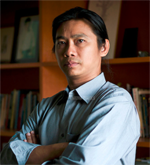The late veteran journalist and activist Win Tin, who spent almost two decades in prison, never resiled from his distrust of the current administration. As a political strategist for the National League for Democracy (NLD), he repeatedly warned Aung San Suu Kyi not to take part in the 2012 byelections. He was concerned that the opposition would be conceding too much ground to a government that came to power through rigged elections, and he didn’t want Suu Kyi to fall into the trap of granting legitimacy to a dubious status quo.
If Win Tin were still alive today, he would have no doubt been bemused by Suu Kyi’s comments over the weekend, during a frank and at times combative interview with Reuters in Naypyidaw.
According to the opposition leader, the government is now a “hardline regime”, and President Thein Sein is “insincere”.

“They are not interested in negotiations or in amending the constitution or taking seriously the will of the people,” she said. “You could hardly say they are moderates.”
Her change of tone was unmistakable, with no sign of the conciliatory language of recent years. Back in 2011, Suu Kyi declared that President Thein Sein was sincere in his desire for political reform, giving Western governments the moral cover needed to reengage with the country. She endorsed him and bolstered his reputation over the objections of many others in the opposition camp.
Between then and now she has met the president several times, seemingly without substantive achievement despite the wildly exuberant hopes and expectations raised by these confabs. It is now clear that the relationship between the pair has completely deteriorated.
The government of Burma is no longer a pariah—sanctions have been lifted, the West has embraced a parliament stacked by former regime members, aid packages and soft loans have been pledged and debt has been written off without conditions. Notable critics of the previous regime, like the United States and Norway, are now singing the praises of reforms and the ongoing peace process in Burma.
The West is no longer using leverage to press for further reform, to the degree it did before Thein Sein’s presidency. In spite of serious assaults on peaceful assemblies, student protests, media freedom and land rights, along with continuing violations of the rule of law and human rights abuses in ethnic areas, the West now sees Burma as a relatively normal member of the international community.
There is virtually no prospect of constitutional changes which would allow Suu Kyi to assume the presidency. While a free and fair election later this year would almost certainly see the NLD take a sweeping majority in the lower house, any future NLD-led administration would be hamstrung by the number of ministries reserved for military appointees.
Though deeply unpopular in Burma, the current government is working to shore up its legacy by finalising a nationwide ceasefire agreement. Thein Sein has yet to rule out seeking a second presidential term, and it is not beyond the realm of possibility that the military will back him to retain the top job in the absence of another compromise candidate.
Attending the draft ceasefire agreement signing last week, the president stole the show; Suu Kyi was nowhere to be found. To many dissidents, ’88-era activists and members of her own party, she is still a prisoner, this time in the isolated and often deserted parliamentary complex in Naypyidaw.
Would Suu Kyi boycott the election, as she hinted in the weekend’s interview? On past form, it is hard to believe so. Instead, she has returned to the court of international public opinion to put pressure on the government, calling on Western powers to do more to push for the constitutional amendments sought by the NLD to be put to a vote before the general election.
Whether these tactics will work is another question, and recent history suggests little cause for optimism. One thing is for certain: Win Tin was right to warn of the perils of trusting a government of doubtful intentions, now reaping the benefits of its international rehabilitation and in no mind to give ground to its foes. Once again, Suu Kyi has been outmaneuvred.
















